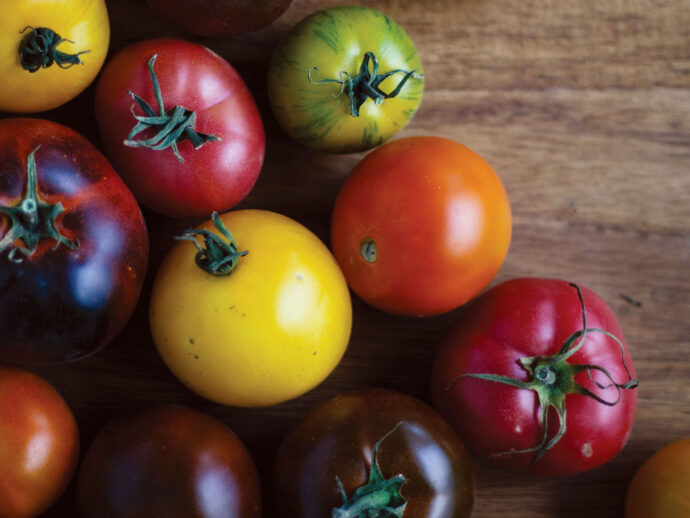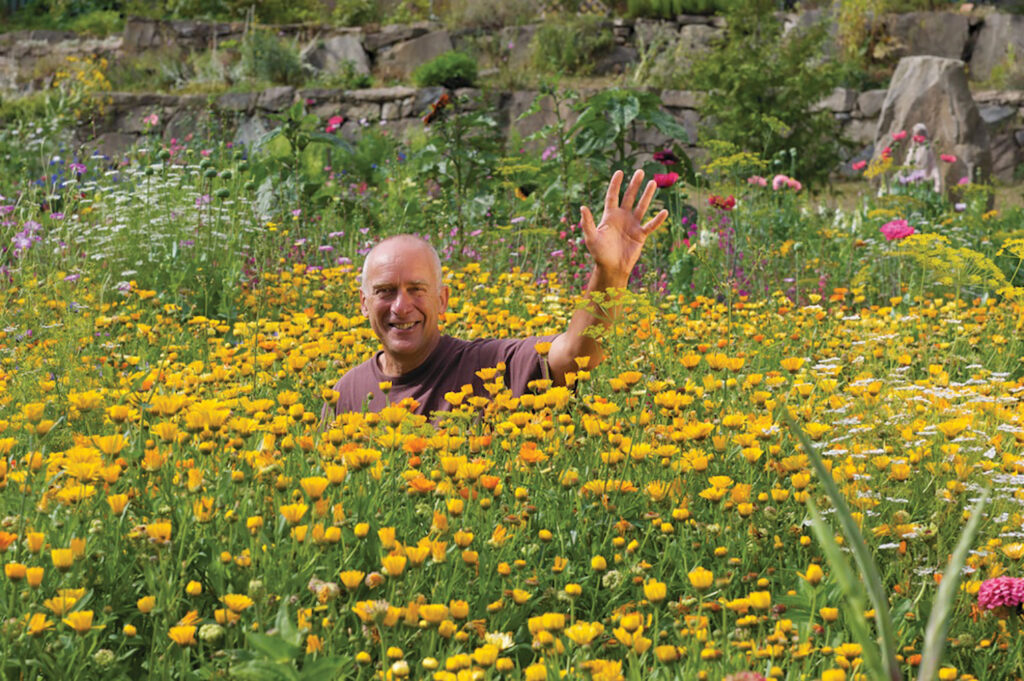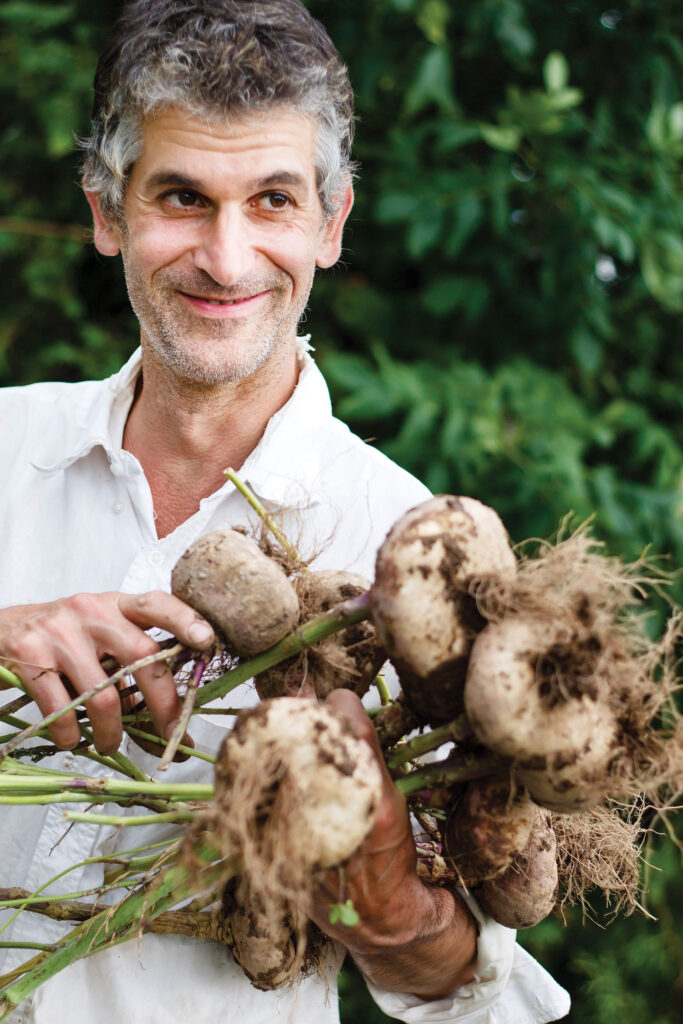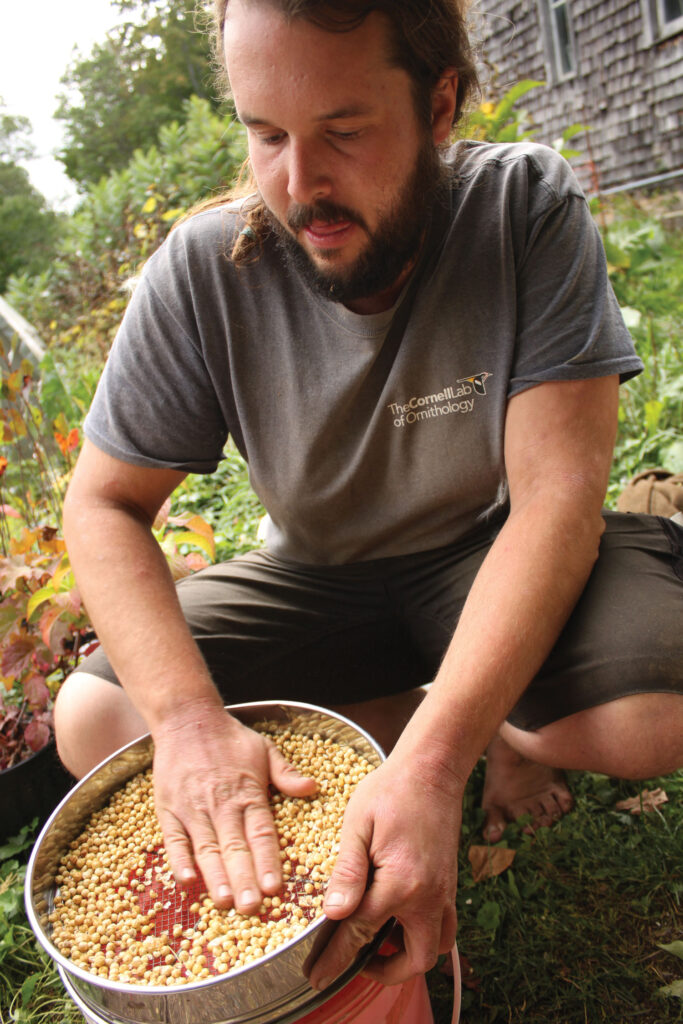
Though most of us don’t save seeds, we can still benefit from the dedicated heirloom seed savers across the country who are passionate about the preservation of a healthy and diverse seed bank. Meet three of these dedicated seed savers.
Late winter days are perfect for dreaming up new projects, and planning next year’s garden is no exception. Whether you’re a seasoned pro or you’re new to gardening, the first step is to sit down with a selection of seed catalogues and start to bring future harvests to life.
It all starts with seeds
It used to be common practice for households to save their seeds in the fall for future planting. This ensured the preservation of well-adapted heirloom varieties, and maintained a healthy and diverse seed bank throughout Canadian communities and around the world.
So what happened?
Most of us don’t save seeds anymore, and instead rely on ordering them through commercial seed suppliers. It’s more convenient and time saving, but it comes with a cost. According to Seeds of Diversity (a nonprofit Canadian organization committed to maintaining heirloom and endangered varieties of Canadian crops), our wealth of plant variety is disappearing, and fast. It is estimated that 75 percent of global food biodiversity has become extinct in the last century.
What is seed saving?
The practice of seed saving involves letting plants go through their natural cycle and reach maturity, rather than harvesting their flower or fruit. Lettuces grow into tall, flowering stalks. And an added bonus: “You’ll get lots of yummy self-seeded weeds!” laughs Patrice Fortier of La Société des Plantes, in Kamouraska, Quebec.
How you can get started
Become a member of Seeds of Diversity and participate in their local Seedy Saturday events. Find the nearest Seedy Saturday event as well as an index of Canadian heirloom seed producers that you can order from at seeds.ca.
Meet the savers of seeds
Dan Jason

While he didn’t study agriculture, Dan Jason, of Salt Spring Seeds in BC, grew up knowing that’s what he wanted to do. After moving to Salt Spring Island in 1976, he started the mail order company supplying heirloom, open-pollinated, and non-GMO seeds.
One of his prized crops? “Garbanzos/chickpeas!” says Jason. “Those are really hard to find at conventional seed suppliers.”
Patrice Fortier

When Patrice Fortier, of La Société des Plantes in Kamouraska, Quebec, first tried his hand at seed saving in 1997, he revived a role last occupied by a late local farmer in the 1940s. “Becoming aware of the loss of our plant heritage fed my curiosity for seed saving, but [it was] also the rarity of wanted crops,” Fortier says.
What did Fortier want to grow that he couldn’t find? “Ficoïde glaciale (also known as ice plant, or glacier lettuce) was one,” he says, “and another was an old variety of beet called Red Crapaudine.”
Want to save seeds?
“Take a workshop first!” urges Patrice Fortier of La Société des Plantes in Kamouraska, Quebec. “Seed saving is simple, but complex. It takes a good gardener to produce a good seed.” You can find a national list of seed trainers at seedsecurity.ca.
Owen Bridge

Dan Jason’s [of Salt Spring Seeds] work inspired a young Owen Bridge who, when his family made the move from BC to the Annapolis Valley, Nova Scotia, in 2006, took his passion for heritage seeds along with him. But he had more than just passion: thanks to an encounter with Jason, he also had “a few very rare bean varieties to grow and save and maintain.”
“Within a few years I was growing about 40 plant varieties,” Bridge says. Now, at Annapolis Seeds, he maintains more than 500. A favourite is the Gardener’s Sweetheart, a heart-shaped cherry tomato.
Reclaiming our plant heritage
In an age when agrochemical companies own a substantial share of the world’s seed supply, our communities’ food security and sustainable farming practices depend on small-scale, local seed savers. But the advantages of heirloom seeds go beyond politics.
“Heritage seeds make ideal crops for the home garden,” Fortier says. “Commercial hybrid varieties were created to deliver a uniform product fit for shipping and travelling, not for maximum flavour and nutrition.”
Jason agrees: “Heirloom seeds definitely have a nutritional advantage, and a better taste.”
Why local is best
If there’s anything better than local foods, it’s local seeds. “How can we expect others to provide elsewhere what is best for our own needs?” asks Fortier. Buying seeds from commercial suppliers means we don’t get the varieties best suited to our specific growing conditions.
For example, the windswept land of Kamouraska, where Fortier farms, has a long, cold winter season and late spring, vastly different from the rainy, temperate Gulf Island weather in which Jason’s crops thrive. “Whenever a line of seeds is grown in a place long enough, it becomes better adapted to that place,” says Bridge.
Heirloom seeds for a holistic garden
Organically grown, local heritage seeds are naturally resilient. “Heirloom seeds have gone hand to hand, to hand,” says Jason. They’ve evolved to grow without the use of pesticides, herbicides, and fungicides. Planting heirloom seeds in your garden is an ecological choice that also fosters better diversity, food security, and deliciousness.



































